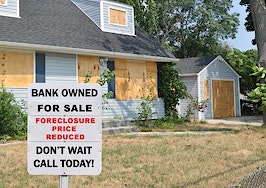A little over a week ago, President Trump sent a number of tweets about Representative Elijah Cummings’ (D-MD) and his Baltimore district, calling the area a “disgusting, rat and rodent infested mess.”
But, is Baltimore really rat and rodent infested mess? According to RentHub’s annual rat study released on Monday, the President is more likely to see a rat or two scurrying by the White House than the average resident of Baltimore and Boston. Sorry New York and Chicago, you’ve still got Washington D.C. beat.
“While the President probably doesn’t mean that Baltimore is, literally, rat and rodent-infested, we at RentHop thought it’d be perfect to revisit the rodent crisis and include the Mobtown in our annual rat study, and see if Baltimore really is rodent-infested,” read the study. “Washington D.C., in fact, is more rodent-infested than Baltimore.”

Baltimore and Washington D.C.’s number of rodent complaints by neighborhood
In 2018, the number of rodent complaints in Washington D.C. increased 7.6 percent year-over-year to 5,715, which breaks down to 83.6 rodent complaints per square mile. Meanwhile, there were 4,476 rodent complaints in Baltimore during the same time period — an impressive 47 percent drop from the height of the city’s rodent problem in 2015.
So far in 2019, Washington D.C. has received 9 percent more rodent complaints from 2018 (3,385), making it the only city on the list to experience an increase.
Boston fared the best, with only 2,732 rodent complaints in 2018. Although New York has the worst reputation for rats and rodents (thanks, pizza rat), the city managed to nab fourth place with only 17,353 rodent complaints for all five boroughs.

The number of rodent complaints in Chicago by neighborhood
Chicago fared the worst with an astonishing 40,057 complaints, and the city is on track to match or surpass it’s 2018 statistics with 21,991 complaints made this year so far.
So, what does this mean for renters? Boston was the only city to see a positive correlation between complaints and the median rent price, meaning that the higher the rent, the more common complaints were.
Meanwhile in Baltimore, Chicago and New York City, there was a negative correlation, meaning that renters with lower median rents were more likely to file rodent complaints.
RentHub was unable to identify a negative or positive correlation for Washington D.C., saying “we did not find any trend when looking at rats vs. 1BR median rent in Washington D.C. Nor did we see any clusters related to high or low rents.”






